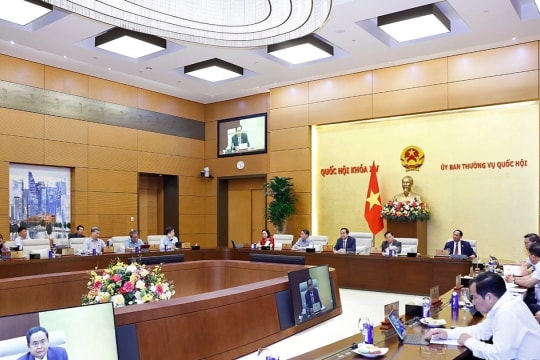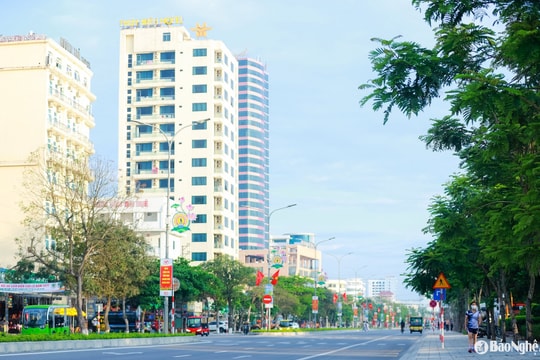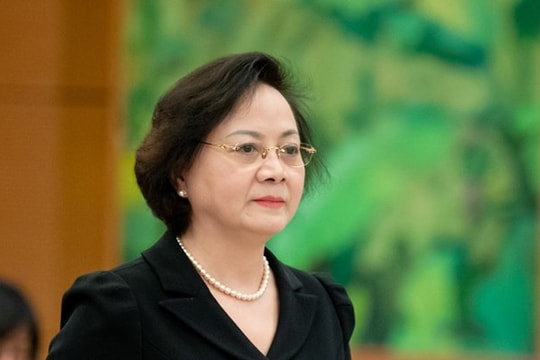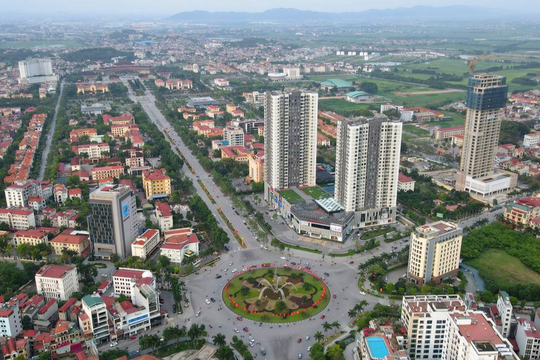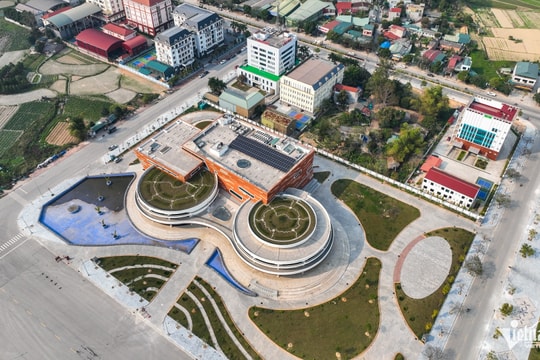Proposal to increase full-time National Assembly deputies
Some members of the National Assembly Standing Committee proposed increasing the proportion of full-time deputies to 40% or 50% of the total number of deputies, instead of the current minimum of 35%.
At the meeting on the draft Law amending and supplementing a number of articles of the Law on the Organization of the National Assembly on the afternoon of September 14, the Drafting Committee of the Law said that the above proposal aims to help make the structure of National Assembly deputies more reasonable, reducing the number of deputies who concurrently hold positions in the executive and judicial sectors.
 |
| Chairman of the Finance and Budget Committee Nguyen Duc Hai. Photo:National Assembly Press Center |
Chairman of the Finance and Budget Committee Nguyen Duc Hai said that to improve the quality of law-making, it is necessary to increase full-time representatives. According to Mr. Hai, in Western countries, the specialized agencies that help the National Assembly make laws are very professional, they are usually lawyers, people who are knowledgeable about the law. Meanwhile, the number of full-time representatives in Vietnam is not much compared to the total number of representatives.
"Like at the Finance and Budget Committee, we jokingly say in football terms that we are playing a 1-4-3 formation, lacking players because we only have 1 chairman, 4 vice chairmen, and 3 standing members," Mr. Hai said and proposed to increase good experts for the Committees, such as the Finance and Budget Committee, which is an expert in finance, securities, budget...
To attract talented people to the National Assembly's committees, the Chairman of the Finance and Budget Committee emphasized the need to change the remuneration regime, because "recently, people from other agencies were planned to become deputy chairmen and permanent members of the Finance and Budget Committee, but they did not like it, and after being included in the planning, they also asked to withdraw."
Chairwoman of the Judiciary Committee Le Thi Nga also reflected on a number of cases where "people had nowhere else to go, so they came to the National Assembly". "There were people who, when we worked with the organization to plan them to become full-time representatives, asked not to let them in," she said.
However, Secretary General of the National Assembly Nguyen Hanh Phuc, head of the drafting committee, explained that Clause 2, Article 23 of the current Law stipulates that the number of full-time National Assembly deputies is "at least 35% of the total number of National Assembly deputies"; thus, this provision does not limit the possibility of arranging more full-time deputies.
Therefore, Mr. Phuc said that in order to implement the requirement to increase the proportion of full-time delegates, it is not necessary to amend the provisions of the Law. Depending on the National Assembly election plan for each term, a reasonable proportion of full-time delegates will be determined in accordance with the requirements and response capacity of the apparatus.
"If the Law is amended to increase the proportion of full-time delegates to a higher level, without carefully calculating the input human resources, it will be very difficult to implement," said Mr. Phuc.
The Law on Organization of the National Assembly was promulgated in 2014 and took effect from January 1, 2016.
The 9th National Assembly has 37 full-time deputies (accounting for 9.44% of the total number of deputies); the 10th National Assembly has 45 full-time deputies (accounting for 10% of the total number of National Assembly deputies); the 11th National Assembly has many innovations in both organization and operation but still has only 121 full-time deputies (accounting for 24.3%)...The 14th National Assembly has 167 full-time deputies out of a total of 484 deputies (accounting for 34.5%).


.jpg)
